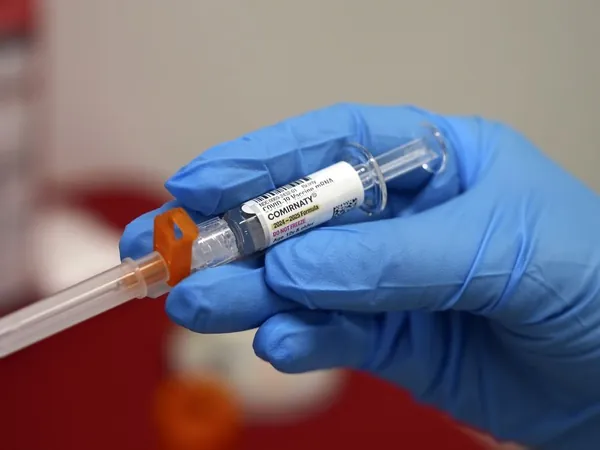
Major Shift in Canada's COVID-19 Vaccine Strategy: Provinces Take the Helm!
2025-01-11
Author: Sophie
Major Shift in Canada's COVID-19 Vaccine Strategy
TORONTO — In a significant policy shift, the Public Health Agency of Canada announced that as of this year, federal funding for COVID-19 vaccines will cease, placing the onus on individual provinces and territories to procure vaccines and set their own vaccination schedules. This decision was unveiled alongside new guidance from the National Advisory Committee on Immunization (NACI), which outlines vaccination recommendations from 2025 to summer 2026.
NACI Recommendations
NACI has stressed the importance of staying ahead of COVID-19, suggesting that residents aged 80 and older, along with those in long-term care facilities, and both adults and children aged six months and older who are moderately to severely immunocompromised, should receive two doses of the vaccine annually. Additionally, it recommends that all adults over 65, healthcare workers, and individuals at greater risk of severe illness should be vaccinated once a year if they have been previously vaccinated. This includes people with underlying medical conditions, pregnant women, and individuals from First Nations, Inuit, and Métis communities, as well as those in racialized populations.
Vaccination Eligibility
Importantly, NACI advised that those who have not yet received a COVID-19 vaccine are still eligible to initiate their vaccination with a two-dose series at any time, responding to the ongoing presence of the SARS-CoV-2 virus throughout the year. The committee noted the distinct seasonal patterns of the virus: unlike influenza, which has predictable peaks, COVID-19 has been circulating consistently with notable increases occurring from late summer into early January, coinciding with respiratory season.
Emerging Variants and Vaccine Updates
As health authorities prepare for the upcoming years, they remain vigilant for the emergence of significant new SARS-CoV-2 variants. If new strains are identified in 2025, updates to existing vaccines may be authorized. Currently, the latest mRNA vaccines from Pfizer-BioNTech and Moderna target the KP.2 Omicron subvariant. Notably, while Novavax has an updated protein-based vaccine aimed at the JN.1 subvariant, the federal government opted against purchasing it, citing the substantial minimum order requirement that exceeded the previous year’s intake of Novavax vaccines in Canada.
Conclusion
This decisive turn in Canada’s vaccination strategy underscores the ongoing evolution of public health initiatives in response to the pandemic, ensuring that health authorities remain adaptable and responsive to new developments in COVID-19 variants and vaccination needs. As we move forward, the effectiveness of local and provincial vaccine strategies will be closely monitored, raising critical questions about access and equity in vaccination resources across the country.



 Brasil (PT)
Brasil (PT)
 Canada (EN)
Canada (EN)
 Chile (ES)
Chile (ES)
 Česko (CS)
Česko (CS)
 대한민국 (KO)
대한민국 (KO)
 España (ES)
España (ES)
 France (FR)
France (FR)
 Hong Kong (EN)
Hong Kong (EN)
 Italia (IT)
Italia (IT)
 日本 (JA)
日本 (JA)
 Magyarország (HU)
Magyarország (HU)
 Norge (NO)
Norge (NO)
 Polska (PL)
Polska (PL)
 Schweiz (DE)
Schweiz (DE)
 Singapore (EN)
Singapore (EN)
 Sverige (SV)
Sverige (SV)
 Suomi (FI)
Suomi (FI)
 Türkiye (TR)
Türkiye (TR)
 الإمارات العربية المتحدة (AR)
الإمارات العربية المتحدة (AR)